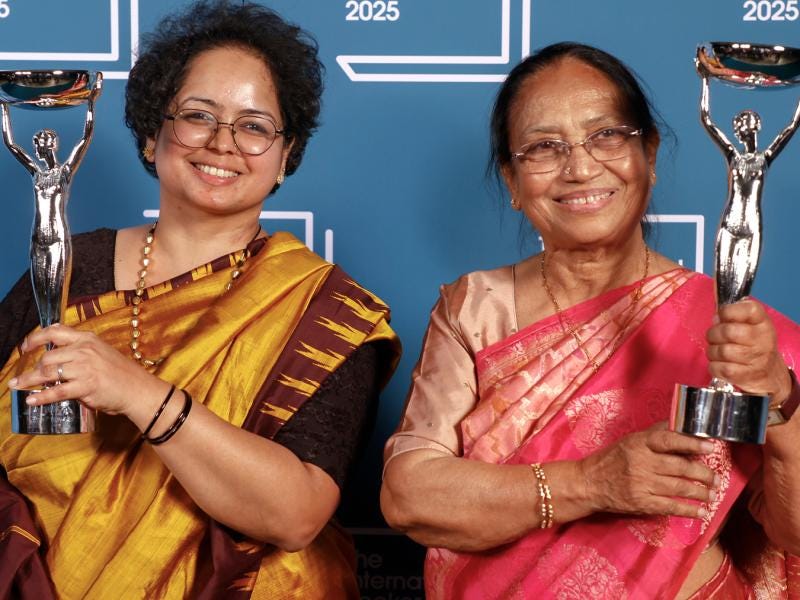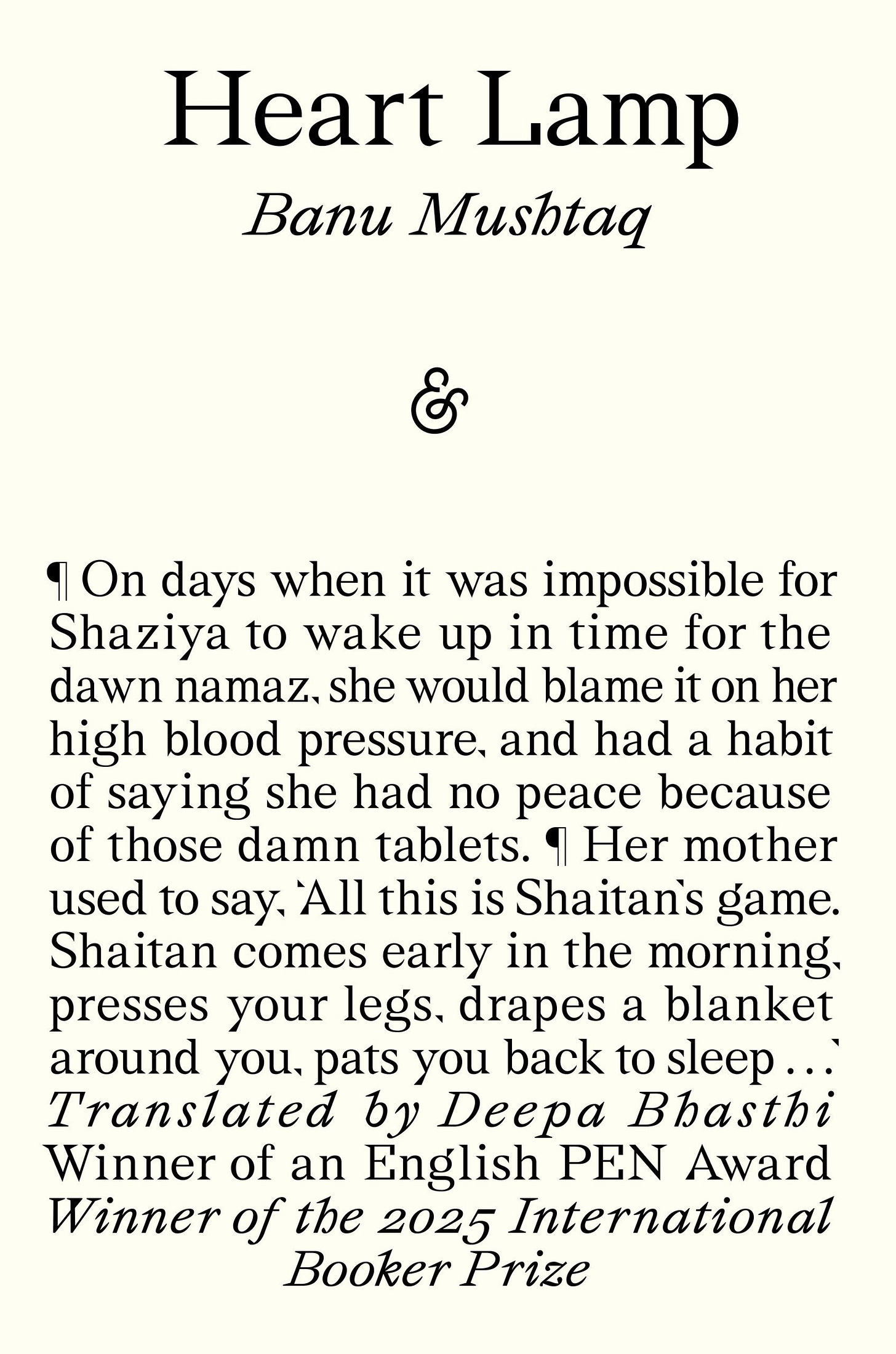Will Banu Mushtaq’s Booker Prize Boost Interest in Novels in Indian Languages
Banu Mushtaq's stories are driven by her emotional response to the pain, suffering and helpless lives of many women in India
(Photo: Deepa Bhasthi, left, and Banu Mushtaq. Courtesy The Booker Prizes.)
May 21, 2025
The potential audience in India for novels and non-fiction books, in English, is small, even for books awarded major international prizes. Only around 300,000 Indians speak English as their first language; another 90 million speak English as their second language.
In contrast, Hindi is the native language of more than 550 million people in India; Bengali, Marathi, and Telugu is the first language of more than 80 million each. Yet, the audience is small for books in Hindi and other major Indian languages as well as in English, including for those receiving international acclaim. Also, typically, major global recognition of a book, written by an Indian, helps boost sales of the English version more so than the original publication or translation in an Indian language.
In 2022, for instance, Tomb of Sand, the English translation of a Hindi novel by Geetanjali Shree, won the International Booker Prize. The English version sold 50,000 copies in India, mostly after the Booker award was announced. The original Hindi novel, Ret Samadhi, which was published in 2018, sold around 35,000 copies, also mainly after the Booker award.
The sales figures of Shree’s Hindi novel and its English translation, by Daisy Rockwell, place them among major best sellers in both languages in India.
This week, sales of another book in an Indian language, and its English translation, received a big boost. Heart Lamp was the second book of fiction in an Indian language, which was translated into English, to win the International Booker Prize. It is a collection of twelve stories by Banu Mushtaq, translated into English from Kannada by Deepa Bhasthi. Kannada is the language spoken by 65 million people in the southern state of Karnataka.
“This was the book the judges really loved, right from our first reading,” Max Porter, Chair of Judges, the International Booker Prize, said in a statement. “These beautiful, busy, life-affirming stories rise from Kannada, interspersed with the extraordinary socio-political richness of other languages and dialects. It speaks of women’s lives, reproductive rights, faith, caste, power and oppression.”
Here is an extract from Heart Lamp:
“Arey, I forgot. I should tell you all about Mujahid, no? Mujahid is my home person. Oh. That sounds odd. A wife is usually the one who stays at home, so that makes her the home person… You could suggest that I use the nice word ‘pati’ for husband – then again, no woman who comes to your house introduces her husband saying ‘This is my pati’ – right? This word is not very popular colloquially. It is a very bookish word. If one uses the word pati, there comes an urge to add devaru to it, a common practice, equating one’s husband with God. I am not willing to give Mujahid such elevated status.”
The International Booker Prize, which was first awarded in 2005, is presented annually to a book written in another language and translated into English. It includes $67,000 to be shared equally by the author and translator. There is also the Booker Prize, awarded by the same organization, for books published in English. Past Indian winners include Salman Rushdie and Arundhati Roy.
The stories in Heart Lamp were chosen by Bhasthi, from around fifty stories in six collections, which Mushtaq wrote between 1990 and 2023. In an interview for the Booker library site, Mushtaq says about her writing methods: “I do not engage in extensive research; my heart itself is my field of study. The more intensely the incidence affects me, the more deeply and emotionally I write.”
Banu Mushtaq, 77-years-old, is a women’s rights activist and lawyer in Karnataka. She is the author of a novel, an essay collection, and a poetry collection. Heart Lamp is the first book-length translation of her work into English. The publisher in the United Kingdom is And Other Stories.
Mushtaq began writing in Kannada in the 1970s, while part of the Bandaya Sahitya movement, a group of writers who were critical of the caste, religious, and gender discrimination in the state. She is a Muslim while Bhasthi is a Hindu.
Deepa Bhasthi, 41, is the first Indian translator to win the International Booker Prize. She is a writer based in Kodagu, southern India. Her columns, essays and cultural criticism have been published in India and internationally. Her published translations from Kannada into English include a novel by Kota Shivarama Karanth.
Bhasthi told an interviewer for the Booker library site that her desire to tell stories “springs from my grandmother who used to live with us. She raised me on stories, two-three a day, more if I begged her enough. When telling stories she became the characters, changing her voice, speaking in gestures and facial contortions…I hope to do with the written word what she so effortlessly used to do with her hands and face and body.”
In an interview for the Booker library site, Mushtaq speaks about her inspiration: “My stories are about women – how religion, society, and politics demand unquestioning obedience from them, and in doing so, inflict inhumane cruelty upon them, turning them into mere subordinates. The daily incidents reported in media and the personal experiences I have endured have been my inspiration. The pain, suffering, and helpless lives of these women create a deep emotional response within me, compelling me to write.”



